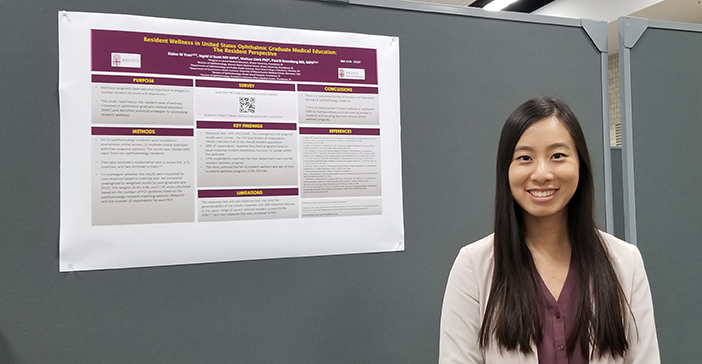Burnout, depression can affect ophthalmology residents, study finds.
Ophthalmology residents across the US face a substantial burden of burnout and depression, which may affect not only the residents themselves but also the quality of care they deliver to patients.
A study led by Elaine Tran ’18 MD’22, which surveyed ophthalmology residents completing their graduate medical training in health care settings across the nation, suggests there are ample opportunities for residency programs to improve and promote wellness initiatives, from nutritional seminars to exercise classes to one-on-one counseling, and make them more accessible.
A majority of the survey’s respondents—68 percent—reported problems with depression, burnout, or suicide in their residency programs within the past year. Survey results indicate that hospitals can do a lot more to support residents on a systemic level, not just by offering a variety of wellness programs but also by ensuring residents have enough free time to take advantage of them, Tran and her coauthors say.
The results were published in JAMA Ophthalmology.
“Physicians-in-training are the future of our health care system, and there has been a recent push to boost support of them through wellness initiatives,” Tran says. “Yet the resident wellness program landscape in ophthalmology has not been well documented in research literature.”
Tran and others at Brown, including Professor of Ophthalmology Paul Greenberg, MD MPH’17, first sought to study the issue in 2016, when they received an Undergraduate Teaching and Research Award (UTRA) from Brown to survey ophthalmology resident program directors about wellness initiatives. A quarter of respondents to that initial survey, for which Greenberg was the lead author, reported issues with resident burnout, depression, or suicide, and just half said their departments had resident wellness programs.
“After hearing from program directors, we recognized that a comprehensive analysis of residency-based wellness initiatives would be incomplete without also soliciting the resident perspective,” Tran says.
Continue reading here.




